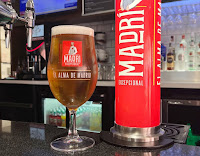Next August, the Scottish Government will introduce a
Deposit Return Scheme under which buyers of all glass and plastic bottles and cans used to package drinks, both alcoholic and soft, will be required to pay an additional 20p deposit which they will be able to reclaim when they return the empty container, the objective being to achieve a substantial increase in the recycling rate. While this is well-intentioned, it is likely to cause significant practical problems for both businesses and consumers which is the last thing they need at a time when everyone is struggling with a cost-of-living crisis.
Any business supplying these products in Scotland will incur additional costs in designing Scotland-specific packaging, as obviously the affected items will need to be clearly identifiable. The two categories of product will then need to be kept separate in the distribution chain. Some producers for whom Scotland only accounts for a small part of their business may well conclude it is no longer worthwhile to supply it at all, thus reducing the choice for Scottish consumers.
Retailers will need to adapt their point-of-sale systems to cope with the deposits, and there is also an unresolved question as to how they will be treated for VAT purposes. They will have to separately account for the revenue and pay it over to the government. And there will be further administration associated with repaying the deposits on returns, and storing them until they can be collected. The collections will require the creation of a whole new logistics system. Fortunately many smaller retailers have now been exempted from the need to act as collection points.
It’s all very well saying that you can reclaim the deposit when you return the container to where you bought it from, but it’s not always as simple as that. If you have a car and routinely drive to the supermarket it may not be too much trouble, but you will still have to gather the containers together and queue to have them redeemed, particularly at busy times. Each container will need to be individually checked to confirm that it falls within the scheme. With the best will in the world, there will inevitably be many car trips specifically undertaken just to return drinks containers.
There will inevitably be pressure to sign up to some kind of scheme to have the refunds paid directly into your bank account, which will further undermine the use of cash and result in more tracking of people’s activities and movements.
If you don’t have a car, you will have to physically lug all your bottles and cans to a collection point, or get someone else to do it for you. If someone else does your shopping for you, it creates a layer of negotiations between neighbours and relatives as to how the deposits are handled. If you give someone a gift of a bottle, you’re effectively gifting them the deposit too.
Where groceries are ordered online and delivered directly to the home, presumably there will be an expectation that the delivery driver will have to collect the empties too and arrange credit to your account, as it would clearly be unreasonable to expect shoppers to physically return them somewhere. That, though, will make the logistical task of deliveries much more complex, with an inevitable increase in costs.
While in theory you will be able to reclaim the deposit and so not be out of pocket, increasing the headline price of products will produce the perception that the cost of living has gone up even more. There is a question mark over whether it will affect the official inflation statistics. And it will undermine Scotland’s minimum alcohol pricing scheme by increasing the headline differential across the border. The sticker price of a 20-can slab of Tennent’s Lager will be a further £4 cheaper in Carlisle than in Dumfries.
Obviously I don’t live in Scotland, so won’t be directly affected. Currently my local council gets me to collect all bottles and cans in a brown bin which is collected monthly. There may be a question mark over how many of them actually get recycled, but it isn’t particularly onerous and seems to work smoothly. They would still need to do this, as it covers a lot of items such as milk cartons and coffee jars which won’t fall within the scope of the DRS.
I would need to separate out the items with deposits and then store them securely within my home, as their value would make them attractive to thieves. From my point of view, it would make life much simpler if someone, either the council or a private company, could collect all the deposit items directly, even if they charged a commission on it.
Many of the most thorny issues revolve around online ordering and delivery, which particularly affects the small brewery sector. I’ve not been able to find any clear answer to this in the literature I have read, but I would assume that any deliveries physically made from outside Scotland would be excluded from the scheme, as otherwise it’s likely that many vendors would simply refuse to supply Scotland entirely because of the cost and administration involved.
However, that isn’t an option for small brewers in Scotland delivering directly to customers, and that is what SIBA have been rightly concerned about and have made strong representations. Apparently the legislation includes a requirement to arrange for physical takeback of online orders, which seems completely impractical in general, but particularly for small producers. It does seem that they have achieved some progress on this, but there is still a long way to go.
“It is therefore encouraging that the Scottish Government has today recognised some of the issues facing the scheme in the Emergency Budget Review and have indicated a willingness to amend the online takeback element which currently would prevent any small producer from selling online in Scotland next year.
“However we would urge the Scottish Government to look again at the requirements for small producers which, as currently designed, are threatening business closures and jobs in Scotland and will lead to reductions in choice and an increase in price. Many small breweries have already told us they will have to stop selling beer in cans and bottles in Scotland because of the multi million pound costs of the scheme to small producers.”
Maybe there needs to be an exemption for smaller producers based in Scotland, which would predominantly be brewers, although inevitably there would be grumbles about unfair competition and edge effects.
It may be that all these issues prove to be just teething troubles, and the system will work well enough once it is bedded in. However, given the SNP government’s past track record on delivering such projects, I wouldn’t hold out too much hope.












